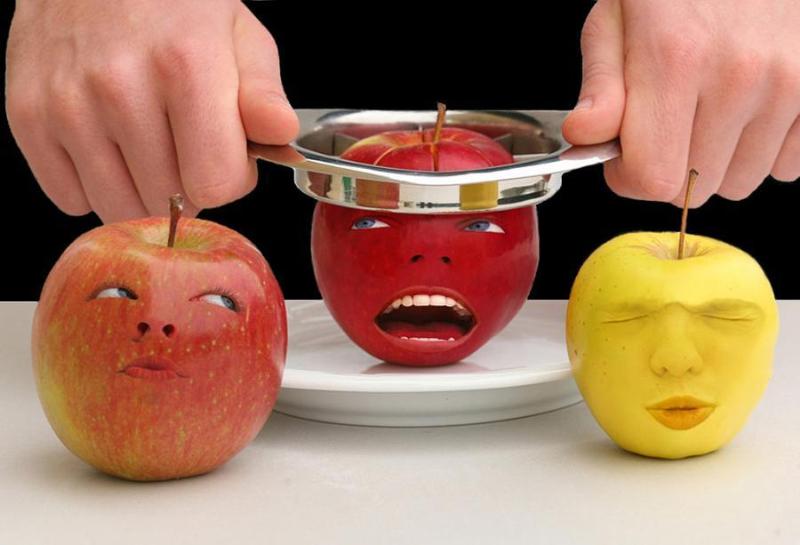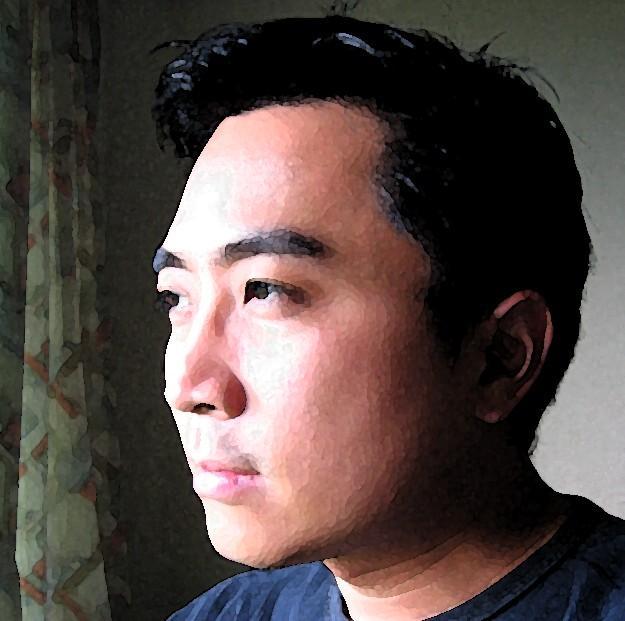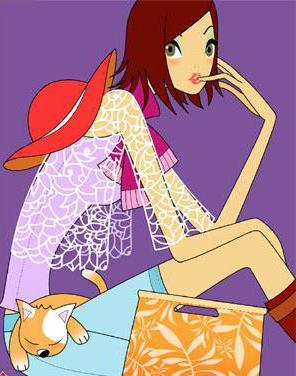| Follow the trend or you will be behind the times! | |
|---|---|
| Apr 6, 2008 04:48 | |
 | As a Chinese, you will be be behind the times if you don't know these popular phrases or popular words. As a Chinese learner, you must be curious about these words or phrases. Today, I will post some popular words or phrases that are often spoken by Chinese guys in 2003. To be honest, I am not familiar with some of them even it is 2008 now. What a shame! I guess that I am out of date too. In or Out: it means 流行 (popular0 and 过时 (out of date) in Chinese. In Hong Kong, it is more popular to head to the mainland than go overseas. "In" corresponds to "heading to the mainland" and "Out" to "go overseas or emigrate to other countries". Popularity: five stars. AA 制:In English, it means "go dutch". Nowadays, it has been introduced to family. Both the husband and the wife take out some money to support daily expenses. Then they go dutch when dealing with their personal affairs. Some couples go fifty-fifty on buying their house, car or doing investment ect. Popularity: four stars. FT: don't take it as Financial Times. Actually, it is the abbreviation for "Faint". In Chinese, it means "晕". If you lurk around some Chinese forums, you will find that many people say this word frequently. Popularity: five stars. GOOD: It is different from good. It means "Get-Out-Of-Debt". Some people work very hard to earn good payment just for paying their debt. When paying off their debt, they will quit. Popularity: four stars. Sick. It means "病人" in Chinese. The sick is not real patient but those who don't want to work or go to school and lie to their boss or theacher that they are sick. Actually, they are very well. Popularity: three stars. 去HAPPY吗? If your female colleague says "去HAPPY吗" to another colleague( still a female), please don't ask them if you can join them. They just go to the toilets. Popularity: four stars. B4: It equals "before" in English. Similarly, CU means "See You". Popularity: five stars. |
| Apr 6, 2008 04:48 | |
 | VIP. It refers to "very interesting person" not" very important person". Popularity: four stars. Townhouse:烫耗子. It is also called "连排别墅" in Chinese. Actually, it is a villa with a garden, garage and balcony but divided into two houses. It is not as expensive as a sole villa but costs several millions of yuan too. Popularity: five stars. Mall:茂. To be precise, it should be 销品茂(Shopping Mall). Right now, more and more cities in China start to build shopping malls. However, what does a real shopping mall look like? Popularity: five stars. Moonlighter:月光人. In 2003, Shanghai government made a policy that allowed in-service staff to buy shares or invest in other corporations. These kinds of people are called "moonlighters". Popularity: three stars. Atypical:非典型. Have you ever heard of 非典型性肺炎 (SARS)? Originally, some Chinese people translated it into Atypical Pneumonia (WHO named it as SARS). Latter on, atypical became popular on the internet. 恐龙 call themselves 非典型美女 (atypical beauty) and 青蛙 call themselves 非典型性帅哥(atypical apollo). Do you know what 恐龙 and 青蛙 mean? 恐龙 refers to a girl that is ugly and 青蛙, a ugly boy. In addition, 恐龙 and 青蛙 are very popular on the internet. Popularity: three stars. MMS:彩信. Do you know SMS, which is shorted for Short Messaging Service? Similarly, MMS refers to Multimedia Messaging Service. In Chinese, it means 彩信. BTW, SMS refers to 短信 in Chinese. In 2003, the cellphones with MMS function became very popular. So is MMS. Popularity: five stars. OT:加班. It stands for overtime. If you work overtime, you will get overtime differential. Understand? BTW, did you hear OP and OQ before? OP refers to over pay and OQ, over quality. I don't know if they are Chinglish. Some guys translate OP as "超标准薪水(well paid)" and OQ, "能力过于出众 (very capable)". Popularity: four stars. Who Cares?:谁在乎?It has become a pet phrase. Popularity: five stars. Sigh:一声叹息. You can find it on many BBS. Those who are depressed and cheerless usually "sigh". Popularity: four stars. |
| Apr 6, 2008 09:51 | |
 | No doubt! |
| Apr 6, 2008 13:15 | |
 | I think there are a lot more internet speech than what you've written, probably sufficient enough to fill up a little dictionary. Perhaps I'm getting old but I didn't really have much good experiences with such speeches. I still remember a couple of years ago when "anyway" was being used between topics (and a nonchalant attitude towards the last topic). I was interviewing this young lady who kept saying that word (with a slight snobbish tilt of the head) that I ended the interview after just 3 questions. I just can't bear the thought of her saying "I'm late for work, ANYWAY the traffic's bad, ANYWAY you'd know it too, SO, just be cool about it." I'm not a sexist but it really make your hand itching for a slap. ANYWAY, she's gone. |
| Apr 6, 2008 17:53 | |
 | Interesting as always, Zoey. |
| Apr 6, 2008 20:54 | |
 | To be honest, I haven't heard most of them even though I am a Chinese. "非典型美女 (atypical beauty) and 非典型性帅哥(atypical apollo)" Very interesting! Now we can call these beauties and handsome boys 典型性美女 (typical beauty) and 典型性帅哥 (typical apollo). |
| Apr 7, 2008 15:35 | |
 | Nowadays, it is the battle between the people who are 主流 and 非主流. There are a couple of videos in circulation with people born in the 80s having 'directed opinions' on those born in the 90s, saying that they aren't in the 主流 (mainstream). Of course, the latter are also releasing videos 'politely retorting' those opinions. So much 'trendy' words was being said between those 2 groups, its like they are speaking in completely different tongue, though still in mandarin, but distinctively characterising the difference in the cultural backdrop in which both groups grew up in. Make me think that China is growing so fast that the generation gap is just about 5 years in age difference. |
Post a Reply to: Follow the trend or you will be behind the times!









 Copyright © 1998-2026 All rights reserved.
Copyright © 1998-2026 All rights reserved.